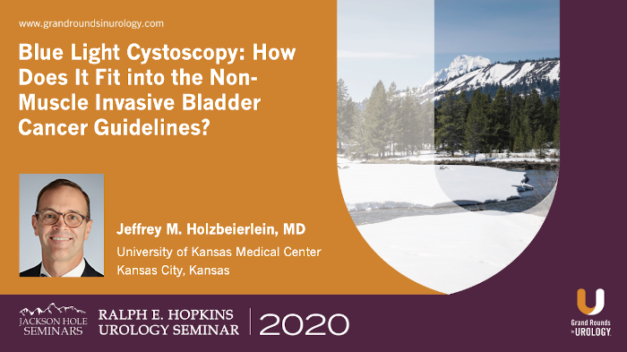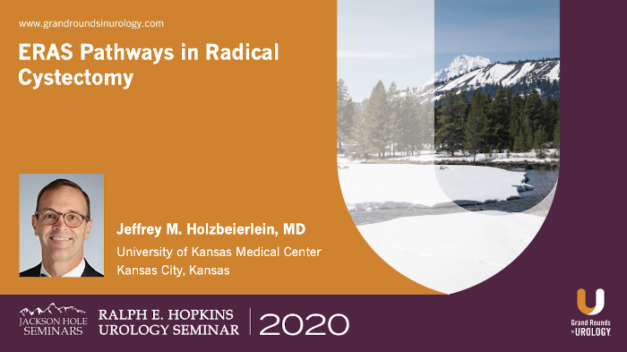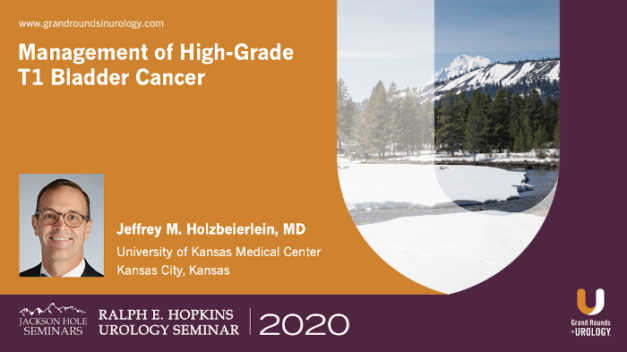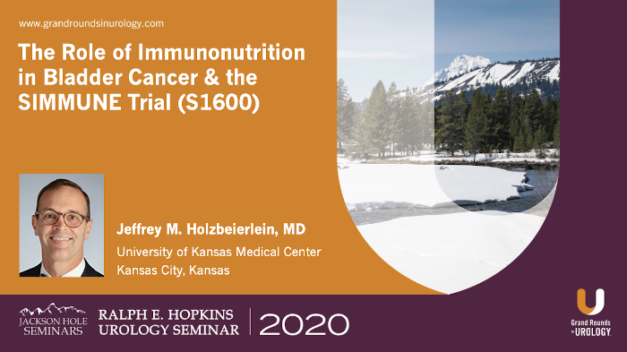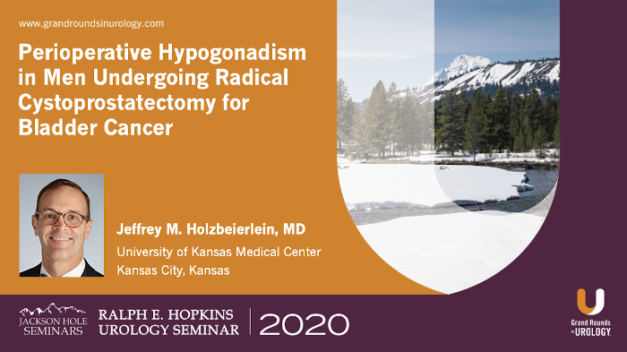Blue Light Cystoscopy: How Does It Fit into the Non-Muscle Invasive Bladder Cancer Guidelines?
Jeffrey M. Holzbeierlein, MD, Director of the Division of Urologic Oncology at the University of Kansas Hospital and Director of Clinical Research for the Urology Department at KUMC, discusses how using Blue Light Cystoscopy (BLC), an enhanced imaging technique that creates a visible contrast between normal urothelium and cancer cells, can improve detection of non-muscle invasive bladder cancer (NMIBC). The AUA, EAU, and NCCN recommend BLC for use in many bladder cancer patients, especially those with positive cytology but negative white light cystoscopy (WLC), but many practitioners eschew BLC due to the expensive equipment required. Dr. Holzbeierlein suggests that the benefits may outweigh the costs, citing multiple studies that have reported increased rates of detection and lower rates of recurrence of NMIBC with BLC vs. WLC, although he acknowledges that researchers have yet to prove that the use of BLC improves progression. Dr. Holzbeierlein concludes by discussing BLC’s particular utility in detecting carcinoma in situ (CIS), which he believes leads to improved resection of CIS and thus better patient response to bacillus Calmette-Guérin.
Read More
